Stevia the Amazing Natural Sweetener

Stevia rebaudiana is a plant native to South America which has been used as a sweetener for hundreds of years1 and is now commonly used in Japan, South America and China as a sweetener in foods and beverages.2 Stevia has been approved for use by many regulatory bodies around the world, including Australia’s Therapeutic Goods Administration.
Stevia has a long history of traditional use and its safety is supported by studies conducted in both animals and humans. A great advantage of Stevia is that it provides sweetness without impacting on blood glucose levels, making it useful as a sweetener in a range of Naturopathic supplements.
Stevia Exerts No Effect on Blood Glucose Levels
Stevia gains its sweetening properties from the natural glycosides of steviol: stevioside, rebaudioside A and rebaudioside C. The steviol glycosides are approximately 250-300 times sweeter than sucrose2 which means that a very small amount can be used to contribute significant sweetness to a product.
Stevia is an appropriate sweetener for people with poor blood sugar control. Steviol glycosides (750mg/d) were tested in type 1 diabetics, type 2 diabetics and non-diabetics with normal blood pressure. No significant effects (positive or negative) were found on any of the parameters measured including BMI blood pressure, blood glucose, HbA1c, Cholesterol, triglycerides, creatinine, liver function, sodium, potassium and chloride.3
Additionally, no adverse effects were seen in a study, in which patients received 1500mg stevioside/day for 2 years, however, in contrast to the study mentioned above, blood pressure was significantly lowered in the treatment group.4
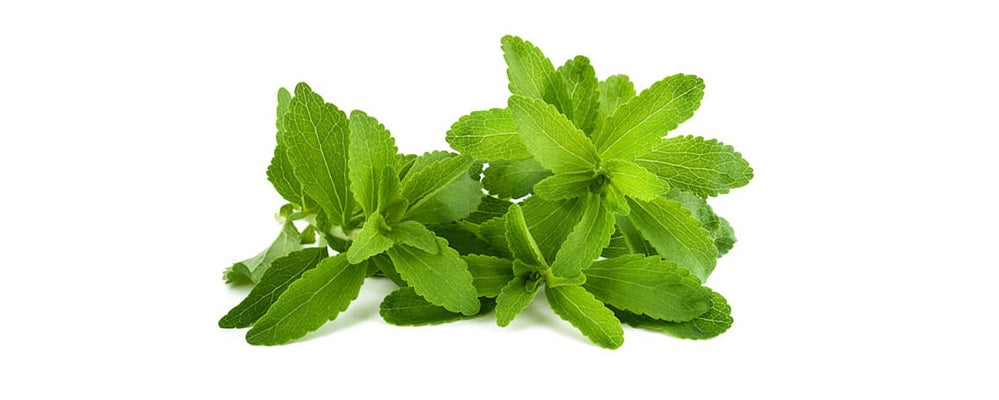
Stevia Safety Studies
A significant number of studies have been conducted to evaluate the genetic and reproductive safety of Stevia. A full review of the literature affirms Stevia as a safe sweetener despite some early unusual results which will be addressed below.
- Animal studies have shown some potential negative impacts on reproduction,5,6,7 however dosages used and modes of administration are vastly different to human consumption and these effects are not likely to be seen in humans. Furthermore, these fertility effects were not confirmed by better designed follow up studies6, therefore, little if any, weight can be placed on the results.
- Early in vitro cell-line studies produced results that indicated further investigation of potential mutagenic effects was warranted. Subsequent evaluations in follow up in vivo studies negate these preliminary results and have shown no mutagenic effect.1
The safety limit for Stevia is determined using steviol equivalents. For the sake of uniformity when comparing safety limits, steviol glycosides are converted to their steviol equivalents. Stevioside quantities are multiplied by 0.40 and rebaudioside A quantities by 0.33 to convert both to steviol.8 The current JECFA acceptable daily intake (ADI) is 0–4 mg/kg body weight (bw)/day on a steviol equivalent.1 To put this in to perspective, consider ~4 mg steviol equivalents as a typical amount required to sweeten nutritional products. For the average weight human, this dose is 60-80 times less than the ADI limit for steviol equivalents.
Stevia has been used as a sweetener because of its superior taste and excellent health and safety profile.
Growing Stevia
The plant, which does well in the border or in containers, grows to 60cm (24″) tall, with clusters of tiny, but attractive white flowers emerging from the tip of every branching stem. Pick fresh leaves from the plant and chew them to release a very surprising, unmistakable, sugar-like quality. Give Stevia a nice sunny spot in your herb garden or patio container garden, with fertile, well drained soil.
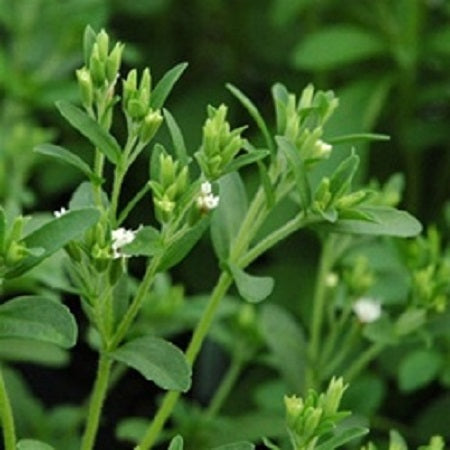
Questions About Stevia
Can I use stevia as an alternative to sugar?
Stevia is a good alternative to sugar and a simple way to reduce calories in your life.
Stevia can be used to enjoy sweetened drinks and food without consuming unwanted calories. Whether you want to lose weight, stay the same weight, or reduce your sugar consumption, Stevia can help you achieve your goal. Simply replace sugar with Stevia and sweeten your hot drinks, smoothies, breakfast cereals, fruit cups etc. as usual, but without the additional calories.
Remember, because Stevia is sweeter that sugar, it is important to use much less than you would use if using sugar.
Is Stevia safe for children?
Stevia is also safe for children. However, it is only recommend consumption from the age of 3 years old, as younger children and babies have different dietary requirements to adults and children over 3 years old.
With children, keep in mind that it is important to let their taste develop the other tastes such as sour, bitter, salty, astringent, pungent (eg chili) and umami. Too much sweetening is not recommended.
Can Stevia be used by pregnant women and nursing mothers?
Pregnant and nursing mothers can safely replace sugars with Stevia. The nutritional needs of a woman change when she is pregnant or breastfeeding, so it is important to ensure that the daily calorie requirement is covered by other foods. Please follow your doctor's instructions.
Can Stevia be used by diabetics and people living in the same household as diabetics?
Stevia is sugar free, low in calories and suitable for diabetics.
The sweetener steviol glycoside, which is derived from Stevia has no influence on blood glucose or insulin levels. Diabetics can enjoy the sweet taste of Stevia without their blood glucose and insulin levels being influenced by a high sugar and carbohydrate intake.
Can Stevia products help to prevent tooth decay?
Stevia is sugar free and can be used as sugar substitutes to help prevent tooth decay.
High sugar consumption can lead to increased acid formation in the mouth, resulting in tooth decay. The replacement of sugar by Stevia can help to prevent this.
Is Stevia gluten-free and conducive to overall well-being?
Stevia is gluten-free and can be consumed by people with coeliac disease. As gluten-free foods, Stevia is easily digestible for everyone and thus, as part of a balanced diet, conducive to general well-being.
Is Stevia suitable for vegetarians and vegans?
Stevia is plant based and contains no ingredients of animal origin.
Stevia contains neither meat nor fish, milk products or eggs and are therefore suitable for vegetarians as well as for vegans.
References
1 JECFA. Safety Evaluation of Certain Food Additives. WHO food Additive Series 42. International Program on Chemical Safety. World Health Organisation, 1999.
2 Brusick. D.J. A critical Review of the genetic toxicity of steviol and steviol glycosides. Food and Chemical toxicology. 2008;46:S83-S91
3 Barriocanal LA, Palacios M, Benitez G, Benitez S, Jimenez JT, Jimenez N, Rojas V. Apparent lack of pharmacological effect of steviol
glycosides used as sweeteners in humans. A pilot study of repeated exposures in some normotensive and hypotensive individuals and in Type 1 and Type 2 diabetics. Regul Toxicol Pharmacol. 2008 Jun;51(1):37-41
4 Hsieh MH, Chan P, Sue YM, Liu JC, Liang TH, Huang TY, Tomlinson B, Chow MS, Kao PF, Chen YJ. Efficacy and tolerability of oral stevioside in patients with mild essential hypertension: a two-year, randomized, placebo-controlled study. Clin Ther. 2003 Nov;25(11):2797-808.
5 Planas G.M. & Kúc J. Contraceptive properties of Stevia rebaudiana. Science. 1968;162(3857):1007
6 Oliveira-Filho R.M. Uehara O.A. Minetti C.A.S.A Valle L.B.S. Chronic administration of aqueous extract of Stevia rebaudiana (Bert.)
bertoni in rats: endocrine effects. Gen. Pharmac. 1989;20(2):187-191.
7 Melis MS. Effects of chronic administration of Stevia rebaudiana on fertility in rats. J Ethnopharmacol. 1999 Nov 1;67(2):157-61.
8 Carakostas MC, Curry LL, Boileau AC, Brusick DJ. Overview: the history, technical function and safety of rebaudioside A, a naturally occurring steviol glycoside, for use in food and beverages. Food Chem Toxicol. 2008 Jul;46 Suppl 7:S1-S10
- Tags: Stevia
- Kevin Tresize
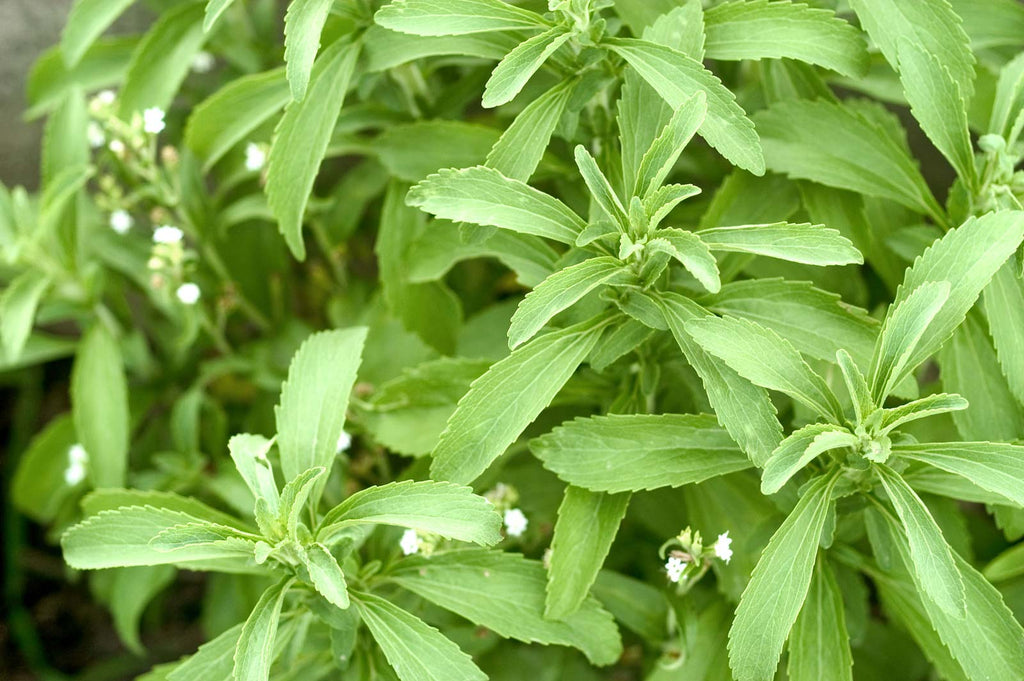




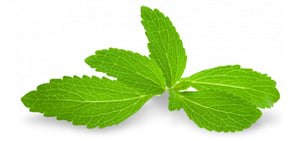
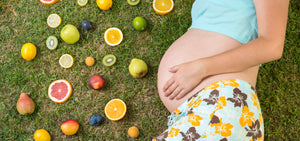

Comments 0